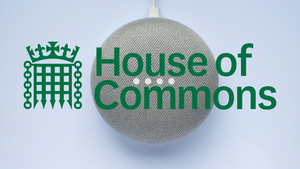The UK government last week formally introduced its Media Bill in Parliament. It seeks to update the regulation of both public service broadcasting and commercial radio; to give media regulator OfCom new powers to draft and enforce a video-on-demand code; and also includes measures to "protect UK radio’s availability on connected audio devices".
The latter move has been particularly welcomed by the commercial radio industry. Its trade body Radiocentre last week explained that, under the new laws, smart speaker platforms will be obliged to "provide unfettered access - without charging - to radio stations licensed by OfCom".
Not only that, but "a listener’s station of choice must be reliably provided in response to a voice command", and broadcasters will be able to "request a default route for their stations to be delivered to listeners on smart speakers". So radio firm Global can insist on delivery via its Global Player, the BBC via BBC Sounds, and so on.
The smart speaker platforms will also be prevented from overlaying their own content, such as advertising, on top of radio services that they deliver.
Welcoming the introduction of the bill into Parliament, Radiocentre said last week that it "will continue to work with all parties as the bill progresses through the House Of Commons and House Of Lords. The parliamentary process does not have a set timetable, but it is unlikely that the Media Bill will receive royal assent - and become law - before early summer 2024".
The trade body's CEO, Matt Payton, added: "Political consensus for the measures that support the UK radio industry is strong, reflecting the important public value delivered by broadcasters to millions of listeners every day. The extent of this support also recognises that as technology develops it is important that legislation keeps pace. We will continue to work with MPs and peers as this vital bill makes its way through Parliament".

